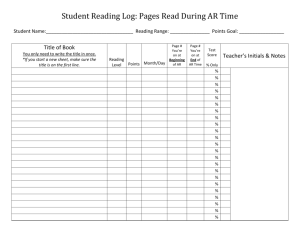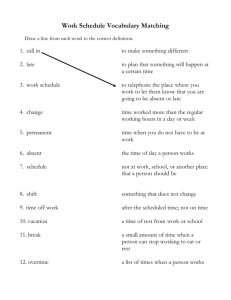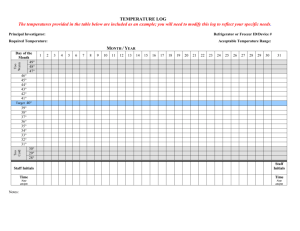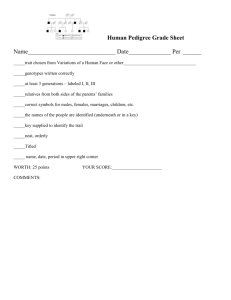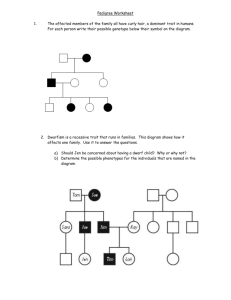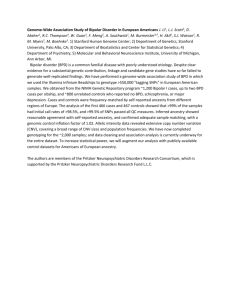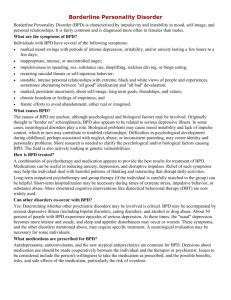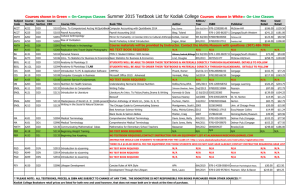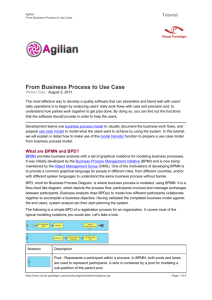SCID-II
advertisement
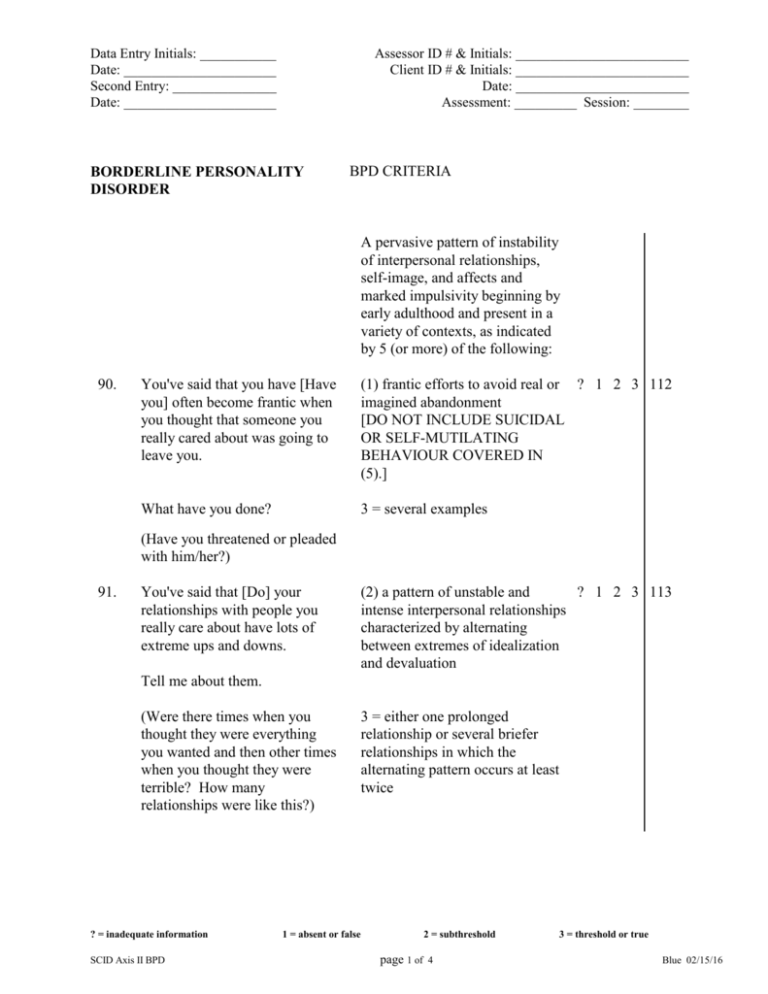
Data Entry Initials: ___________ Date: ______________________ Second Entry: _______________ Date: ______________________ Assessor ID # & Initials: _________________________ Client ID # & Initials: _________________________ Date: _________________________ Assessment: _________ Session: ________ BORDERLINE PERSONALITY DISORDER BPD CRITERIA A pervasive pattern of instability of interpersonal relationships, self-image, and affects and marked impulsivity beginning by early adulthood and present in a variety of contexts, as indicated by 5 (or more) of the following: 90. You've said that you have [Have you] often become frantic when you thought that someone you really cared about was going to leave you. (1) frantic efforts to avoid real or ? 1 2 3 112 imagined abandonment [DO NOT INCLUDE SUICIDAL OR SELF-MUTILATING BEHAVIOUR COVERED IN (5).] What have you done? 3 = several examples (Have you threatened or pleaded with him/her?) 91. You've said that [Do] your relationships with people you really care about have lots of extreme ups and downs. (2) a pattern of unstable and ? 1 2 3 113 intense interpersonal relationships characterized by alternating between extremes of idealization and devaluation Tell me about them. (Were there times when you thought they were everything you wanted and then other times when you thought they were terrible? How many relationships were like this?) ? = inadequate information SCID Axis II BPD 3 = either one prolonged relationship or several briefer relationships in which the alternating pattern occurs at least twice 1 = absent or false 2 = subthreshold page 1 of 4 3 = threshold or true Blue 02/15/16 NIMH 3 b 1999-2003 92. 93. You’ve said that you have [Have you] all of a sudden changed your sense of who you are and where you are headed. (3) identity disturbance: markedly and persistently unstable self-image or sense of self Give me some examples of this. [Note: Do not include normal adolescent uncertainty] You’ve said that your [Does your] sense of who you are often changes dramatically. 3 = acknowledges trait ? 1 2 3 114 Tell me more about that. 94. You’ve said that you are [Are you] different with different people or in different situations so that you sometimes don’t know who you really are. Give me some examples of this. (Do you feel this way a lot?) 95. You've said that there have been [Have there been] lots of sudden changes in your goals, career plans, religious beliefs, and so on. Tell me more about that. 96. You've said that you’ve [Have you] often done things impulsively. What kinds of things? ? = inadequate information SCID Axis II BPD (4) impulsivity in at least two ? 1 2 3 115 areas that are potentially selfdamaging (e.g., spending, sex, substance abuse, reckless driving, binge eating). [DO NOT INCLUDE SUICIDAL OR SELF-MUTILATING BEHAVIOR IN (5).] 1 = absent or false 2 = subthreshold page 2 of 4 3 = threshold or true Blue 02/15/16 NIMH 3 b 1999-2003 (How about ... ... buying things you really couldn’t afford? ... having sex with people you hardly knew, or “unsafe sex”? ... drinking too much or taking drugs? ... driving recklessly? ... uncontrollable eating?) 3 = several examples indicating a pattern of impulsive behavior (not necessarily limited to examples above) IF YES TO ANY OF ABOVE: Tell me about that. How often does it happen? What kinds of problems has it caused? 97. You’ve said that you have [Have you] tried to hurt or kill yourself or threatened to do so. (5) recurrent suicidal behavior, gestures, or threats, or selfmutilating behavior 98. You've said that you have [Have you ever] cut, burned, or scratched yourself on purpose. 3 = two or more events (when not in a Major Depressive Episode) ? 1 2 3 116 Tell me about that. 99. You've said that [Do] you have a lot of sudden mood changes. Tell me more about that. 100. (6) affective instability due to a marked reactivity of mood (e.g., intense episodic dysphoria, irritability, or anxiety usually lasting a few hours and only rarely more than a few days) (How long do your “bad” moods last? How often do these mood changes happen? How suddenly do your moods change?) 3 = acknowledges trait You've said that [Do] you often feel empty inside. (7) chronic feelings of emptiness Tell me about this. 3 = acknowledges trait ? = inadequate information SCID Axis II BPD 1 = absent or false 2 = subthreshold page 3 of 4 ? 1 2 3 117 ? 1 2 3 118 3 = threshold or true Blue 02/15/16 NIMH 3 b 1999-2003 101. 102. You've said that [Do] you often have temper outbursts or get so angry that you lose control. Tell me about this. (8) inappropriate, intense anger or ? 1 2 3 119 difficulty controlling anger (e.g., frequent displays of temper, constant anger, recurrent physical fights) You've said that [Do] you hit people or throw things when you get angry. 3 = acknowledges trait and at least one example OR several examples Tell me about this. (Does this happen often?) 103. You've said that [Do] even little things get you very angry. When does this happen? (Does this happen often?) 104. You’ve said that when you are under a lot of stress, you [When you are under a lot of stress, do you] get suspicious of other people or feel especially spaced out. (9) transient stress-related paranoid ideation or severe dissociative symptoms ? 1 2 3 120 Tell me about that. AT LEAST 5 ITEMS ARE CODED "3" 1 3 121 BORDERLINE PERSONALITY DISORDER ? = inadequate information SCID Axis II BPD 1 = absent or false 2 = subthreshold page 4 of 4 3 = threshold or true Blue 02/15/16
